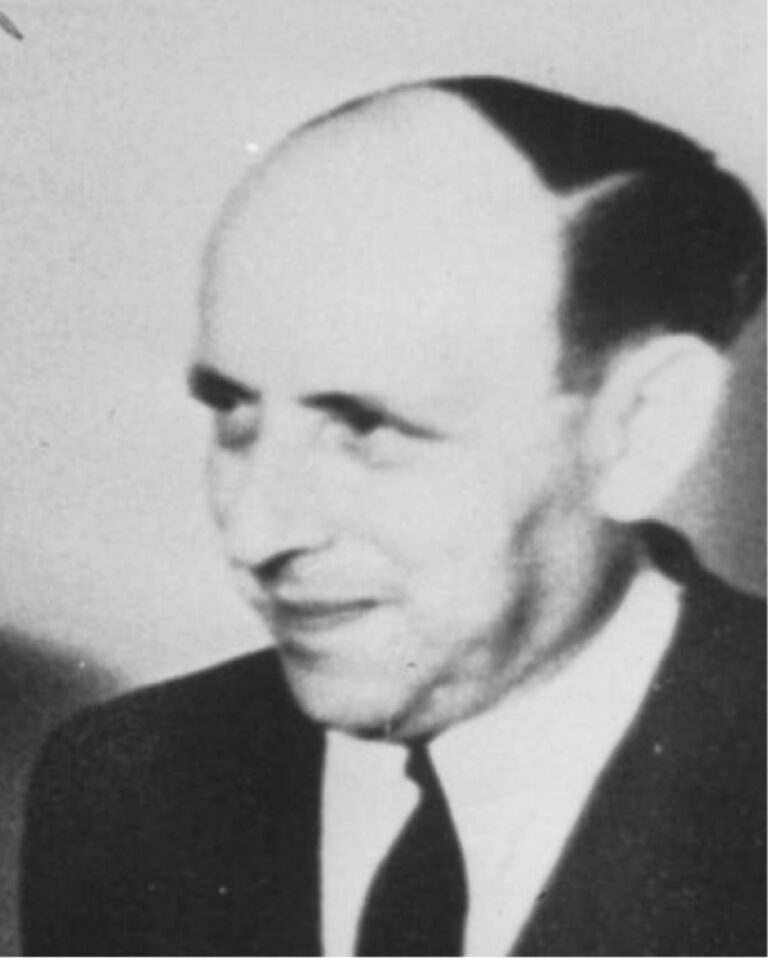Grumach grew up in a Reform Jewish family in East Prussia and received a thorough education despite his father’s early death. He studied at various universities, including those of Königsberg (now Kaliningrad, Russia), Leipzig, Berlin, Heidelberg and Marburg, where he was influenced by scholars like Martin Heidegger and Paul Friedländer. He earned his doctorate in Königsberg and began working at the University of Königsberg in 1930. After being dismissed in 1933 due to the Law for the Restoration of the Professional Civil Service, he opened a bookstore in Königsberg to support himself and his family.
In 1937, Grumach moved with his wife and three-month-old daughter to Berlin to teach at the Higher Institute for Jewish Studies. The four years he spent there were a distinctive experience. The Institute was already in decline, as many of its students and faculty members were emigrating or looking for ways to leave the country. For Grumach, however, this move had brought an improvement in his working and living conditions. In Berlin, he found himself amidst an academic community that had undergone similar experiences. He began to give lectures, hold seminars and write articles again.
In 1941, Grumach, together with other Jews, was compelled to perform forced labour at the Reich Main Security Office (RSHA). The forced labourers were responsible for cataloging books looted by the Nazis from all over Europe. Shortly after starting work, Grumach was appointed the leader of the group, which is now known as the “Grumach Group”. The forced labour temporarily sheltered him and the other Jewish forced labourers and their families from deportation. Grumach used every opportunity to expand the group and thus protect more people.
Controversy over recovered books
Grumach survived the war years in Berlin against all odds. After the war ended, he actively participated in the recovery of the stolen books and the revival of German Jewry. Ernst Grumach’s role in the recovery of books looted by the Nazis after the Second World War and the discussion about their further use was controversial, particularly due to his decision to assign these books to the Reich Association of Jews in Germany. The Nazis had established the Reich Association to administer the Jewish community in Germany during the war; it was dissolved in 1943. This decision was controversial because other organisations, including international Jewish aid organisations, were also interested in the looted cultural assets, and the Reich Association no longer existed.
It was also viewed as problematic because it raised questions about who should best represent surviving German Jews and how to distribute of the recovered Jewish heritage after the Holocaust. Moreover, Grumach was disappointed by foreign Jewish organisations’ lack of support for the devastated German Jewry. Amid the complex post-war circumstances, these factors made his role in handling the recovered books controversial.
“We were a tight-knit group, keenly aware that each of us held all the others’ destinies in our hands […] also possessed by the singular mission that, by fate, had fallen into our laps: to preserve, maintain and rebuild the looted Jewish libraries ourselves so that they could one day be taken over by us as a central Jewish library. Our bond was strengthened by a multitude of shared experiences, adventures, interests and a deep sense of responsibility.”
